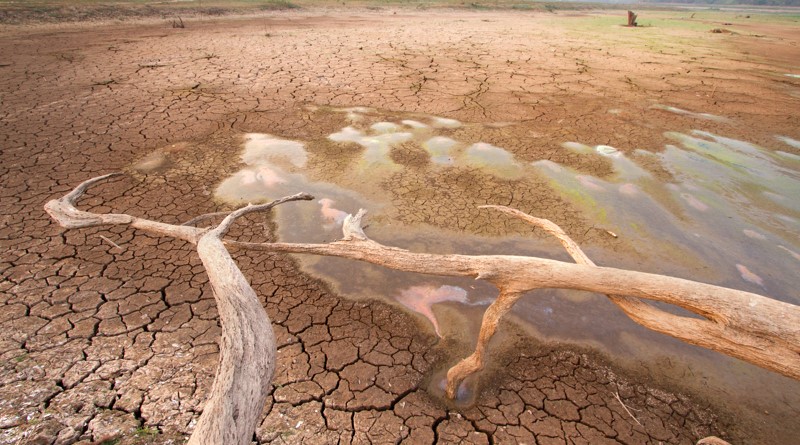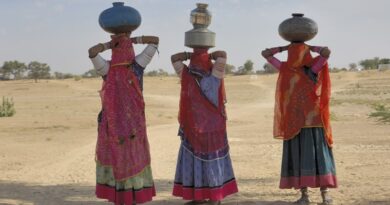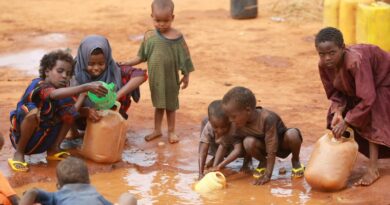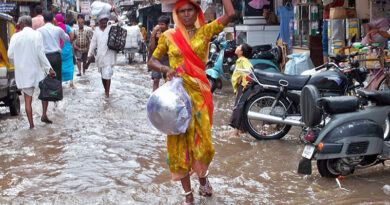Water security remains key priority in Asia-Pacific’s recovery from COVID-19

Countries across Asia-Pacific need to prioritise water security as part of their COVID-19 recovery initiative to support economic growth and increase social well-being, a new water development report published by the Asian Development Bank (ADB) has suggested, adding that urban water security should be achieved by investing in water, sanitation, and disaster risk reduction infrastructure services not only in cities but also in slums and peripheral areas, while following a gender-based approach.
Strengthening national water security is a must for improving the quality of life of all people in Asia and the Pacific. Recovering from the setback caused by COVID-19 and adapting to climate change require that all countries put water security at the top of their agendas, the Asian Water Development Outlook (AWDO) 2020 noted.
Water security enables economic growth and provides the conditions for a healthy and prosperous population.
The report recommended that countries in the region should position water as the centerpiece of sustainable rural development by promoting water-effective irrigation agriculture, community-based water and sanitation services, and locally resilient disaster risk reduction such as the combination of community protection and farmland flood retention. This will enable a good economic circle of locally affordable investment, income generation, proper management and operation, and an enhanced level of welfare for the people.
The report outlines water sustainability progress and identifies areas which are in need of greater water security to guide future investment decisions and assist Asia in achieving their United Nations Sustainable Development Goals.
“AWDO has become a reference for water policy reform and investment planning. ADB’s developing members are increasingly elevating water security in their development agendas and applying AWDO principles to formulate effective national and subnational water policies”, said ADB President Masatsugu Asakawa.
“The new AWDO edition serves as a tangible and reliable knowledge resource for ADB’s developing members as they address the multifaceted challenges of water security”, he added.
Despite water security achievements in Asia and the Pacific region, evidence from the AWDO 2020 reported that 1.5 billion people living in rural areas and 600 million in urban areas still lack adequate access to clean water and sanitation.
The pandemic has exacerbated the need for greater water security measures. According to the AWDO 2020, three billion people across Asia have been hit hard by the virus as a result of having no access to water for hygiene and sanitation purposes, making the need for water security even more significant.
To help improve the region’s water security, ADB has programmed more than $6 billion in financial and technical assistance between 2020 and 2022 to make safe water and sanitation more accessible and to support wastewater measures.
In the same period, ADB has also programmed more than $2 billion to support flood risk management services.
The ADB report also suggests that countries should provide a healthy environment for the people by drastically reducing pollution, stimulating a circular economy, increasing terrestrial protection, and embracing nature-based solutions for improving water security of other key dimensions.
Increase the resilience of the water systems to avoid water-related disasters and to be prepared for climate and other global changes. Turn recent lessons of disasters into better practices of tomorrow by building back better and applying nature-based solutions.
Asia has achieved impressive growth in economic and social welfare during the last decades. Good water management and human capital development remain vital to support economic growth and increase overall social wellbeing in Asia and the Pacific, especially after the coronavirus disease 2019 (COVID-19) pandemic, the report said.
Of the 49 Asian Development Bank members from Asia and the Pacific, 27 face serious water constraints on economic development, and 18 are yet to sufficiently protect their inhabitants against water-related disasters, it noted.
It is imperative that countries drastically increase their investment in water, sanitation, and other water-related infrastructure and services by convening all public, private, and innovative financing, which is overwhelmingly lacking, to achieve quality growth and the Sustainable Development Goals in the region. At the same time, financing is needed to enable and sustain a virtuous system of good governance, which requires efficient water-related organizations with sufficient capacity and financial resources to enable them to provide coherent policies, monitor and evaluate progress, and take action when needed, all in interaction with the stakeholders in a transparent way.



